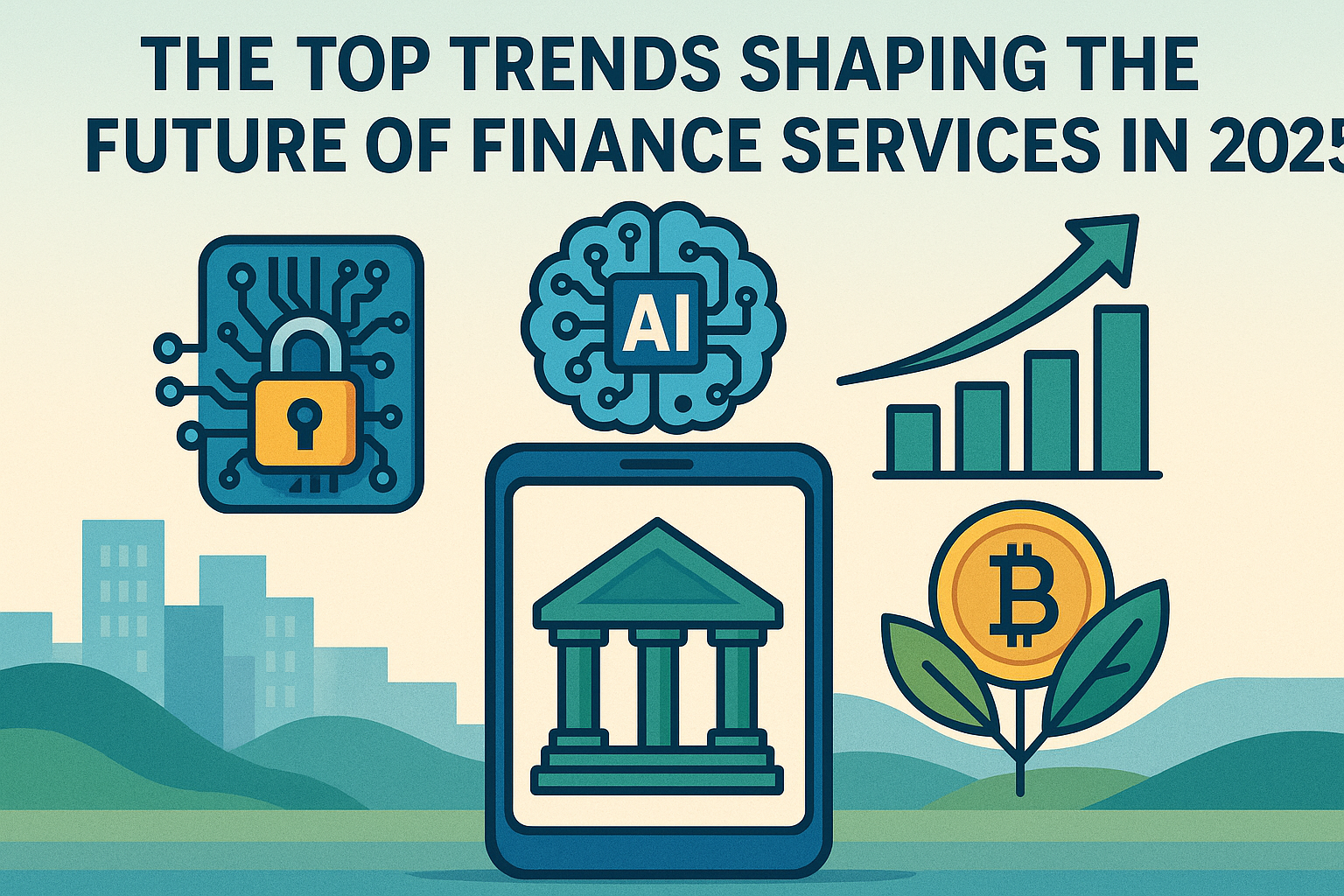Technology, consumer behaviour and global economic shifts are all having a big impact on the financial industry in 2025. More digital, agile and inclusive systems are replacing traditional banking models. The way we deal with money is changing fast, from blockchain to AI, integrated finance and sustainable investing. Regulators are updating frameworks to protect users and keep up with innovation.
Whether you are an individual investor, client or business owner, you need to understand these trends. In this article, we will look at the top trends shaping the future of finance services in 2025.
1. Wider Digital Banking
Digital banking is becoming the norm, not the exception. Online and mobile app payment methods will be more popular with clients than in 2025. Real-time analysis, AI-powered chat help and biometric login will enable banks to deliver seamless experiences. These tools will help consumers save money, manage their spending wisely and make good financial decisions.
Even the smaller banks and cooperative groups are spending on the digital infrastructure to keep up with the competition. Neo-banks, meaning those without branches, are gaining significant popularity due to their cheap pricing and easy-to-use interfaces.
2. Rise in Embedded Finance
One of the most interesting trends is the rise of embedded finance. It is the embedded financial services within non-financial platforms. As an example, a ride-sharing application can offer insurance to the drivers, or an online store can give temporary credit at checkout.
This development is making the ordinary user find the finance services less difficult and more approachable. Through these value-added financial services, corporations across all sectors of business are finding alternative streams of revenue.
3. AI in Financial Services
Artificial intelligence is transforming how banks work. Whether it is fraud detection or customer service, artificial intelligence approaches are enhancing accuracy and efficiency on all levels. In 2025, finance institutions will be more accurately underwriting credit risk, making investment recommendations personalized and automating routine tasks with artificial intelligence.
Investor demand in AI-enabled robo-advisors is also growing. Through these websites, the investor gets cheap investment advice based on an analysis of consumer preferences and market trends. They are aiming at younger investors seeking fairly priced solutions that are at ease with digital instruments.
4. Greater Emphasis on Cybersecurity.
The issue of cybersecurity has emerged to be a major challenge because internet financial solutions have increased by quantum leaps. In a bid to safeguard personal information, a number of financial institutions are heavily investing in superior security measures.
One of the ways through which financial firms are seeking to raise consumer awareness is through the education of customers on online fraud, mobile applications and secure browsing practices. The value of trust in finance is what is witnessing the provision of a safe online atmosphere by businesses.
5. Sustainable Finance and ESG Investing.
The idea of sustainability is no longer a fashionable term, but it is an adopted necessity. ESG is becoming relevant in investments. By 2025, individual and institutional investors will prefer funds and companies that follow ethical and environment-oriented principles.
Investments in green bonds, impact investments and sustainable mutual funds are on the rise. The regulatory bodies across the globe are drafting regulations to make the ESG reporting transparent. The trend is driven by conscious capitalism.
6. The Blockchain Technology and Decentralised Finance (DeFi).
These two technologies have been adopted by the tech world. Mainstream financial institutions are studying this blockchain and decentralized finance technology because it could increase transparency and lower transaction costs.
Moreover, by 2025, more platforms will add tokenized assets, smart contracts and decentralized sources of funding. The laws that should regulate DeFi are still in the process of development, but their influence on banks is increasing with each year.
Conclusion
In 2025, the finance services sector is becoming more customer-focused, inclusive, and secure, in addition to more digital. Technology now forms the core of service delivery rather than being a supplementary tool. The way we handle and manage money is changing as a result of new ideas like blockchain, embedded finance, artificial intelligence, and ESG investment. As a consumer, business owner, or financial expert, being abreast of these advancements will help you make better choices.







